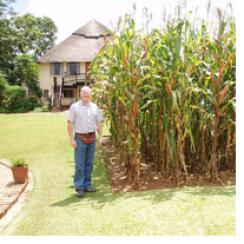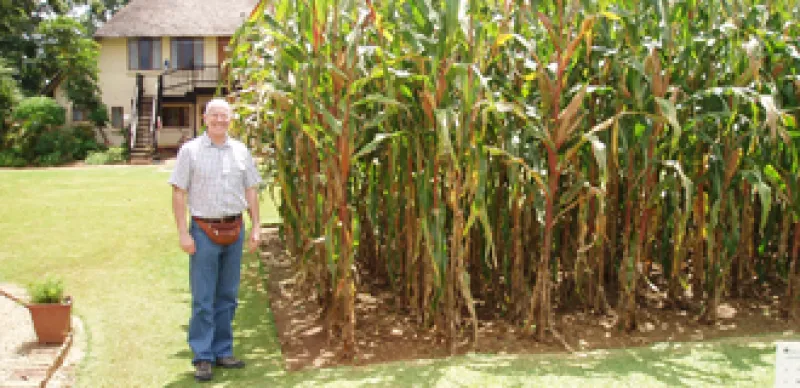Gary Vaughan-Smith is no slouch at growing assets. As head of ABN Amro Asset Management’s alternative investment group, he boosted assets from less than $50 million to more than $5 billion in just five years. Now he wants to apply the same skill to growing crops. As a founding partner of London-based SilverStreet Capital, he aims to buy up farms in Africa; raise productivity by using sustainable agriculture, such as no-till farming; and sell the produce domestically. He also wants to teach local farmers better techniques.
“The problems with food production in Africa arise from the low productivity on the part of small-scale farms — and the majority of Africa’s farms are small-scale,” says Vaughan-Smith. “We thought that if we could improve that scenario by training people to farm more effectively and getting productivity up, agricultural communities across the region could boom.”

He sees enormous potential. Although Africa possesses roughly one third of the world’s arable land and some of its best soil, it suffers from chronic food shortages. Most farmers have little access to high-quality seeds and fertilizer and don’t know how to prevent erosion and nutrient depletion. More-sustainable practices, Vaughan-Smith contends, can produce tremendous yields: On commercial farms in parts of Zambia, corn output rivals that in the U.S.
Vaughan-Smith and his team of seven professionals — which includes 17-year Gartmore Investment Management veteran Edwin Doeg, who joined SilverStreet in 2008 — are scouting for commercial farms in five countries — Malawi, Mozambique, Tanzania, Uganda and Zambia — where conditions are deemed to be the most favorable. Although the fund will concentrate initially on row crops like wheat, corn and soybeans, it plans to branch into sugarcane, fruit, tea and livestock. African farmland is still cheap. A hectare in Zambia sells for $1,500, says Vaughan-Smith, compared with $9,600 for a comparable-size plot in the U.S. corn belt.
Nevertheless, finding suitable farms is not easy. “Buying land in Africa is very inefficient,” he says. “There is no way to go into a central database and see which farms are for sale, and for what price — you have to have a very good network of contacts in the country and an ability to source potential acquisitions.”
The team plans to develop training hubs at each of its major agricultural centers. Education has been delegated to a charity, Foundations for Farming. Silverlands’ farm management team intends to help local farmers by giving them better access to high-quality seeds and fertilizer, helping them negotiate group discounts and providing assistance in buying, processing and distributing locally grown crops.
Farming takes patience, and that goes too for investing in farming. A private equity fund, Silverlands has an investment cycle of ten years, with a 2 percent management fee and a 20 percent performance fee (over an absolute hurdle of 7 percent). SilverStreet has raised $100 million so far and will close Silverlands at $300 million. “I find it really exciting to be able to bring this sort of investment capital to Africa,” says Vaughan-Smith. “There is so much we can do to have a positive social impact.”






